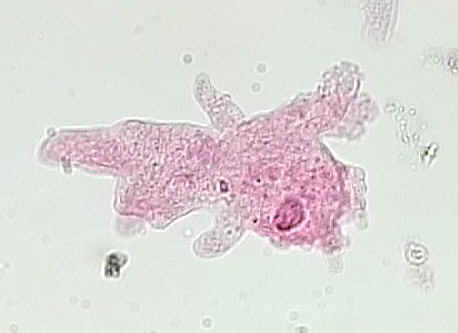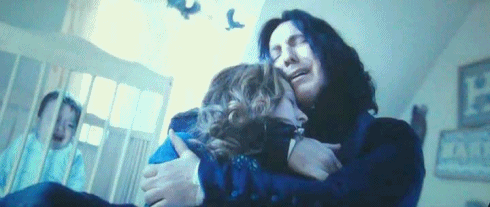There was an amoeba. For the purposes of this blog post, he was fully capable of thought, was self-aware, and was named Lars. Also for the purposes of this blog post, these three phenomena are typically amoebic patterns in nature. Just go with it.
Lars was a perfectly normal amoeba—filled with cytoplasm and DNA, going about his life with his shapeless single-celled friends, no visible mutations that would cause him to evolve into a “more advanced” being. No, Lars was an average amoeba, whatever average means by protozoan standards. If you’re curious, Lars was an Amoeba proteus, so he was fairly large compared to other species of amoeboids. But this isn’t about the other puny mono-cells. This is about Lars, the average amoeba.
We observe Lars whilst in the midst of phagocytosis. Some people feel self-conscious when being watched as they process food, but Lars is an amoeba, so he obviously doesn’t mind. We jot down a few notes about how Lars’ meal enters his food vacuole. It doesn’t matter that we’re watching Lars digest his food without his consent. He is an amoeba, and has little regard for humanoid concerns such as modesty and privacy.
Lars feels an odd sensation. It’s minutely painful, like a stretching from every point in his single-celled body. If he had read The Princess Bride, he would have compared it to the suction-cup machine that sucks on every inch of Wesley’s skin*. If he knew what Chinese water torture was, he would have thought the sensation would drive him mad in the same manner. If Lars had a mouth, or the capacity to express his emotion vocally, he would have wanted to scream. But Lars was an amoeba, so he has none of these thoughts or inclinations. And then, the sensation is relieved. If he was able, Lars would have breathed a sigh of relief, as he felt like a huge weight had been lifted. He expands and contracts his cytoplasm, stretching his tiny amoebozoan body. Suddenly, Lars is aware of another entity of equal size in close proximity. Lars, through his remarkable protozoic sleuthing, determines that this other being had been a part of him. Lars feels proud—he had created an entirely new existence, purely of his own cytoplasm and nuclear matter. And this new presence would go onto split itself infinitely (or at least until the petri dish reached its carrying capacity) into new amoebic entities. Lars fancies himself the father of an entire race of amoebae. He is the asexual patriarch of the entirety of the petri dish, and is quite predictably drunk with the power.
But the Venn diagram that people who care about amoebae and people who aren’t amoebae is rather small, if not single-cellular. And so, after we finish our observations, we dispose of Lars and his spawn in the proper biological waste disposal.
*No, bro. It’s not in the movie. The movie is good, but seriously, the book is legit. Try reading it.
-----------
If you desire another perspective of the confusion that significance entails, consider our size. We are composed of a bajillion cells, which are composed of a bajillion molecules. And each molecule is composed of atoms, which are composed of tiny particles, which are composed of even tinier particles. We're kind of a big deal. Except not really. This planet has a massive number of inhabitants. Compared to the number people that do, will, and have inhabited this planet, the number of people that will ever be cognizant of your existence is very, very, small. And that's only on Earth. Nearly everyone has seen those scales that point out how small the Earth is compared with the Sun, and how small The Solar System is compared with the galaxy, and how small the galaxy is compared with other galaxies, and how small even the largest galaxy is with only the furthest points in space that our puny humanoid technology can fathom.
And yet, my hyper-inflated ego can't help but think that everything I and every other puny human does is influential.
 Sir Lars, the mighty amoeba
Sir Lars, the mighty amoeba It just seemed appropriate. And I like to spoil things. I'm sorry if the flashing-moving-emotionalness is distracting.
It just seemed appropriate. And I like to spoil things. I'm sorry if the flashing-moving-emotionalness is distracting.